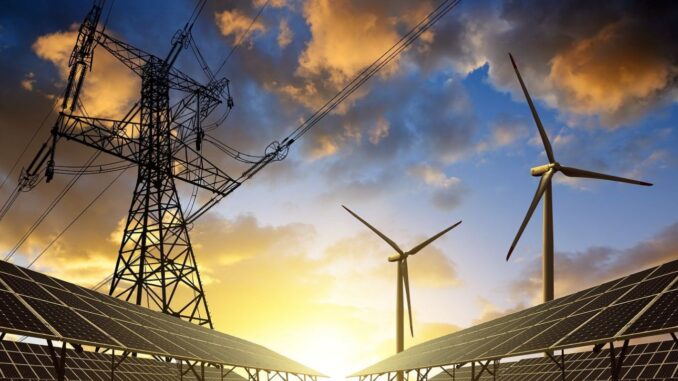
Renewable energy refers to energy that is derived from resources which are naturally replenished on a human timescale.
The main types of renewable energy include:










1. Solar Energy
Source: Sunlight
Description: Solar energy is harnessed through technologies like photovoltaic (PV) panels, which convert sunlight directly into electricity, and solar thermal systems, which use sunlight to produce heat.
2. Wind Energy
Source: Wind
Description: Wind energy is captured using wind turbines that convert the kinetic energy of wind into electrical power.
3. Hydropower (Hydroelectric Energy)
Source: Flowing or falling water
Description: Hydropower is generated by using the energy of moving water, typically from rivers or dams, to turn turbines and produce electricity.
4. Geothermal Energy
Source: Earth’s internal heat
Description: Geothermal energy is derived from the natural heat of the Earth’s interior. It is accessed by drilling wells to release steam or hot water, which can then be used to generate electricity or for direct heating.
5. Biomass Energy
Source: Organic materials
Description: Biomass energy comes from plant and animal materials, such as wood, agricultural residues, and manure. These materials can be burned directly for heat or converted into biofuels for electricity generation and transportation.
6. Ocean Energy
Types:
Tidal Energy: Generated by capturing the energy of tidal currents.
Wave Energy: Produced by harnessing the energy from surface waves on the ocean.
Ocean Thermal Energy: Utilizes the temperature difference between warmer surface water and colder deep water to generate electricity.
Source: Movement and thermal properties of ocean water
Characteristics of Renewable Energy
Sustainability: Renewable energy sources are naturally replenished and are sustainable over the long term.
Low Environmental Impact: Generally have lower environmental impacts compared to fossil fuels, particularly in terms of greenhouse gas emissions and air pollution.
Decentralization: Many renewable energy technologies can be deployed at various scales, from small residential systems to large utility-scale projects, promoting energy decentralization and access.
Conclusion
Renewable energy encompasses a diverse array of technologies that utilize natural processes and resources to generate electricity and heat. As the world seeks to address climate change and reduce dependence on fossil fuels, the role of renewable energy continues to expand, driven by technological advancements, policy support, and increasing cost competitiveness.
Leave a Reply